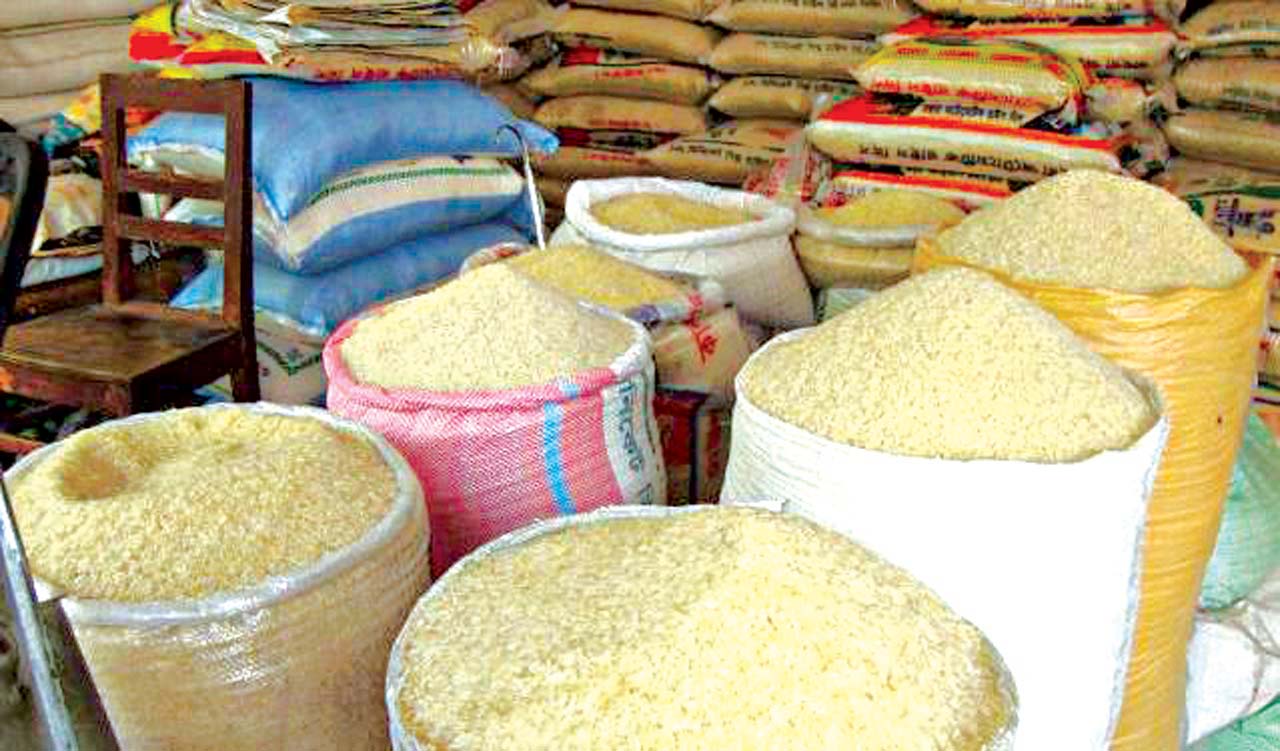BUSINESS &ECOMONY

RICE NOW ₦100,000 PER BAG AS HUNGER DEEPENS NATIONWIDE
Nigeria is once again grappling with soaring food costs as the price of a 50kg bag of rice has surged back to as high as ₦100,000, after briefly dropping to ₦65,000 about six months ago.
A market survey in Lagos revealed that while some rice brands still hover around ₦77,000–₦85,000, many premium long-grain varieties now sell for ₦90,000 to ₦100,000. Local rice, previously sold at ₦70,000 to ₦72,000, has also risen sharply.
Dealers and stakeholders blame the increase on the expiration of the 150-day duty-free import window for essential food items under the federal government’s stabilization plan. According to rice dealers, the end of the import waiver has triggered scarcity and driven prices up. Many expressed frustration, calling the situation "dire" and unsustainable.
One Lagos-based dealer lamented that short-grain rice, once sold for ₦65,000, now fetches ₦85,000, while long-grain varieties are almost unaffordable. Another dealer added that customers now prefer buying rice in small household measurements like “Derica” due to high prices.
The Rice Millers Association of Nigeria (RIMAN) has expressed concern, claiming that the waivers were issued secretly to a select few companies, sidelining local producers and worsening market distortion. Only three major firms—two reportedly in Lagos and Kaduna—are believed to have benefitted from the waivers.
RIMAN’s leadership criticized the waiver scheme as a short-term fix that hurts local farmers, millers, and processors. They argue that such selective import policies threaten the viability of Nigeria’s rice industry by undercutting local production and leaving farmers with unsold harvests.
Despite a reported ₦1.9 trillion ($1.17 billion) spent on brown rice imports between July and December 2024, and additional shipments in 2025, the price of rice has remained high due to local production shortfalls and smuggling from neighboring countries.
Smuggled rice—mostly from Benin Republic—continues to flood the market, with over 1 million metric tonnes estimated to have entered Nigeria illegally in 2025 alone. This trend further undermines local producers who are already burdened by high input costs, insecurity, erratic power supply, and FX challenges.
Industry leaders say Nigeria has more than enough rice milling capacity to feed the nation, but poor policy coordination, inconsistent government actions, and lack of transparency in waiver allocation have crippled the sector. Many millers are scaling back or shutting down operations altogether.
In addition to financial strain, insecurity continues to affect rice production. Farmers are abandoning fields due to kidnappings, and input costs—like fertilizers, labor, and fuel—remain unsustainably high.
Calls are growing for greater accountability and policy coherence. Agricultural stakeholders argue that ministries responsible for agriculture and finance must explain who benefitted from the import waivers and why many genuine millers were excluded.
They warn that continued neglect could erase years of progress in Nigeria’s rice self-sufficiency drive, resulting in job losses, capital flight, and further dependency on imports.
Another prominent youth advocate in agriculture criticized the lack of public disclosure on waiver recipients, saying it promotes favoritism and undermines smallholder farmers—who produce over 70% of Nigeria’s rice. He emphasized that without transparency, Nigeria risks reversing its food security gains.
He added that the opportunity cost of these waivers is massive—money lost in potential investments in irrigation, mechanization, and input support. "Every billion naira waived could have been used to empower the farmers instead," he said.
Experts also warned that without real-time policy intervention, Nigeria could be facing an irreversible crisis in its agricultural value chain.
According to the Food and Agriculture Organisation (FAO), more than 30 million Nigerians are currently at risk of acute hunger, with numbers projected to worsen during the June–August lean season.
The situation highlights the dangers of relying on short-term solutions like waivers without fixing structural problems in the agricultural sector. Unless decisive, coordinated action is taken, food insecurity will deepen—and both producers and consumers will continue to suffer.
"This represents a significant development in our ongoing coverage of current events."— Editorial Board









